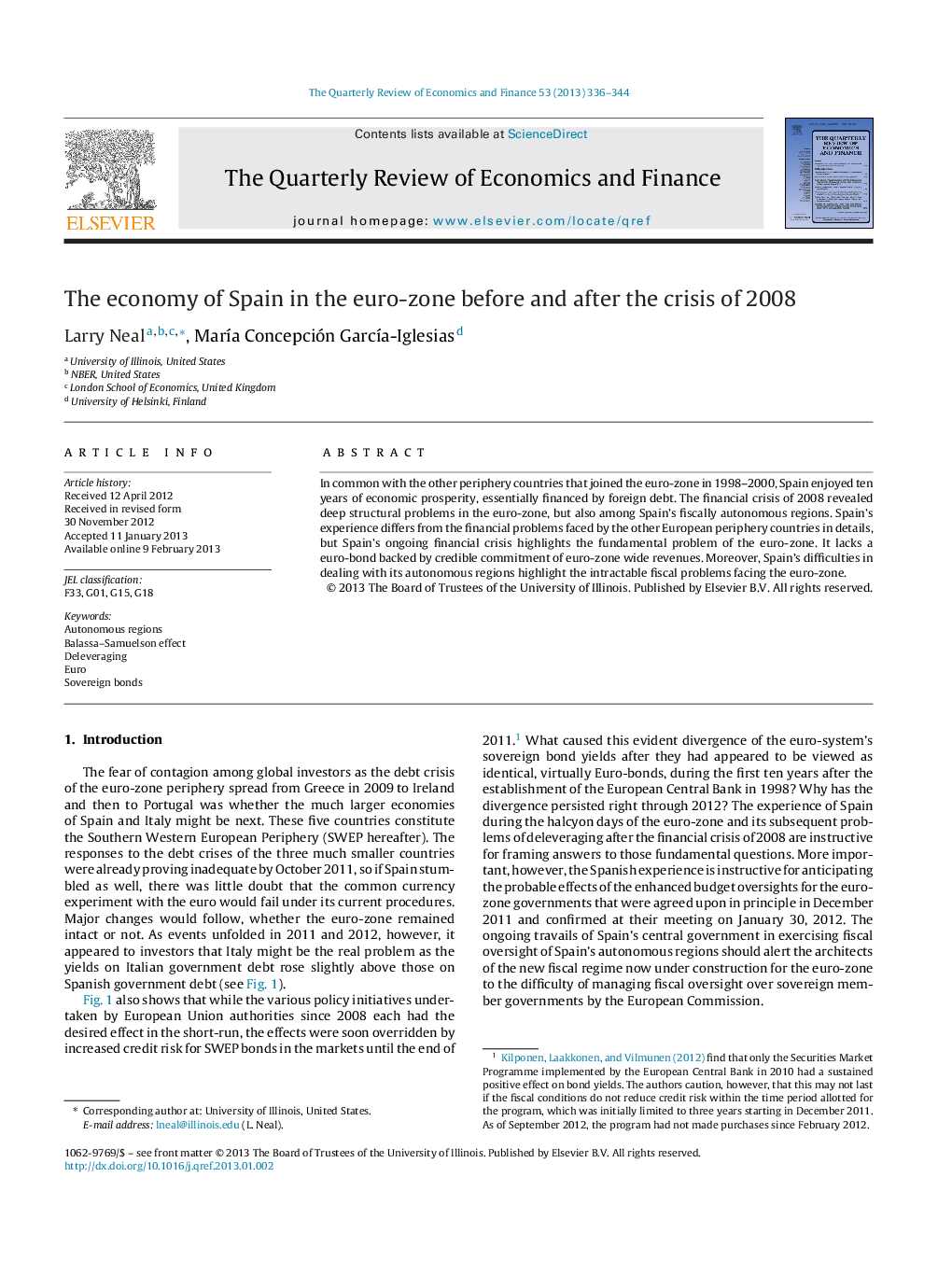| Article ID | Journal | Published Year | Pages | File Type |
|---|---|---|---|---|
| 983313 | The Quarterly Review of Economics and Finance | 2013 | 9 Pages |
In common with the other periphery countries that joined the euro-zone in 1998–2000, Spain enjoyed ten years of economic prosperity, essentially financed by foreign debt. The financial crisis of 2008 revealed deep structural problems in the euro-zone, but also among Spain's fiscally autonomous regions. Spain's experience differs from the financial problems faced by the other European periphery countries in details, but Spain's ongoing financial crisis highlights the fundamental problem of the euro-zone. It lacks a euro-bond backed by credible commitment of euro-zone wide revenues. Moreover, Spain's difficulties in dealing with its autonomous regions highlight the intractable fiscal problems facing the euro-zone.
► Spain's sovereign bonds were priced as if they were a common euro-zone bond until the crisis of 2008, creating moral hazards that played out at regional levels. ► As Spain's regional governments and savings banks suffered the collapse of housing booms, the central government's bonds fell from favor as well. ► The failure of the central government to control regional government budgets foreshadows continuing problems for Spain and for the future of the euro-zone.
